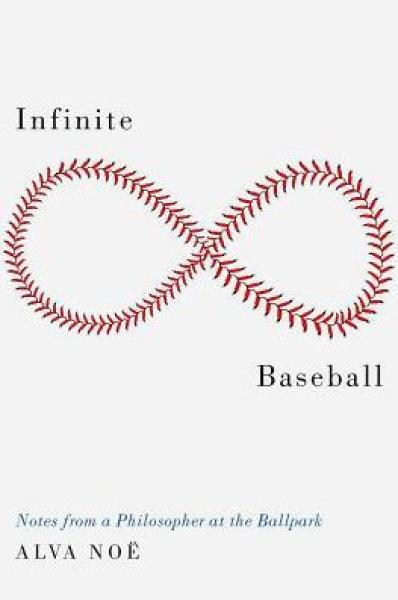Description
today's shorter attention spans. But for the true fan, baseball is always compelling to watch -and intellectually fascinating. It's superficially slow-pace is an opportunity to participate in the distinctive thinking practice that defines the game. If baseball is boring, it's boring the way
philosophy is boring: not because there isn't a lot going on, but because the challenge baseball poses is making sense of it all.
In this deeply entertaining book, philosopher and baseball fan Alva No� explores the many unexpected ways in which baseball is truly a philosophical kind of game. For example, he ponders how observers of baseball are less interested in what happens, than in who is responsible for what happens;
every action receives praise or blame. To put it another way, in baseball - as in the law - we decide what happened based on who is responsible for what happened. Noe also explains the curious activity of keeping score: a score card is not merely a record of the game, like a video recording; it is
an account of the game. Baseball requires that true fans try to tell the story of the game, in real time, as it unfolds, and thus actively participate in its creation.
Some argue that baseball is fundamentally a game about numbers. Noe's wide-ranging, thoughtful observations show that, to the contrary, baseball is not only a window on language, culture, and the nature of human action, but is intertwined with deep and fundamental human truths. The book ranges from
the nature of umpiring and the role of instant replay, to the nature of the strike zone, from the rampant use of surgery to controversy surrounding performance enhancing drugs. Throughout, Noe's observations are surprising and provocative.
Infinite Baseball is a book for the true baseball fan.
"Almost more than any other sport, baseball has long attracted the interest of writers and intellectuals. Relatively few of them have been philosophers however. Alva Noe, a celebrated philosopher, here proposes to collect and rework his short articles and blog posts (many of which first appeared on npr.org) on baseball into a cohesive and accessible book that tries to tease out its deeper meanings - and to advance a view of what baseball ultimately is all about. A basic theme will run through the book, which is that fundamentally baseball is concerned with questions of responsibility and liability - i.e. who gets credit or blame for a play. It is starting from this fundamental insight that Noe then ranges over diverse topics like the slowness of baseball and the virtues of boredom, why fans write down box scores, the meaning of the no-hitter, television replays, the aesthetics of ballparks, how we learn to 'see' baseball like we learn to look at art, the ethics of performance enhancing drugs, the nature of fandom, and reflections on rules and umpires. Noe's writing voice is informal and personal, and always puts the details of the sport before the ideas. Ultimately, his essays are part of a larger view of baseball as fundamentally a game about values - and not simply, as some would have it, a numbers game"--
"Did you know that baseball is uniquely a 'forensic' game about allocating credit or blame? Or that performance enhancing drugs are no more disreputable than Tommy John surgery? Alva No�, a philosopher in the bleachers, is not always convincing but is invariably interesting. And he does what a
philosopher should do: When you finish this slender volume you will have a new way of seeing familiar things." --George F. Will
"Whether it's his contention that baseball isn't slow enough, his logic on the fallacy of PEDs or his thoughts on why it's OK for adults to crave a ball tossed into the stands, Alva No� wields a philosopher's wit and wisdom to cut through modern sports' recycled rhetoric and arrive at a place we all
should be: that baseball is life, it's love and it's damn near perfect." --Jeff Passan, ESPN MLB Insider and author of The Arm: Inside the Billion-Dollar Mystery of the Most Valuable Commodity in Sports
"America's national game is an invitation to philosophical reflection. Berkeley professor Alva No� takes up the challenge with insight and wit and shows how baseball casts light on life, language, history, and being bored. This book will delight baseball fans and the philosophically minded in equal
measure." --David Papineau, University College London and author, Knowing the Score: What Sports Can Teach Us about Philosophy
"This is a delightful book. If you love baseball, or if you want to love baseball, you will love this book. No� �thin ks hard about baseball and shows us just how important thinking is to this beautiful game, and how much thinking through baseball can inform our lives. His reflections call to mind
not only Roger Angell, but C.L.R. James on cricket." --Jay L. Garfield, Smith College
Product Details
- Oxford University Press, Brand
- Apr 1, 2019 Pub Date:
- 0190928182 ISBN-10:
- 9780190928186 ISBN-13:
- 208 Pages
- 7.1 in * 5.1 in * 0.9 in Dimensions:
- 1 lb Weight:




